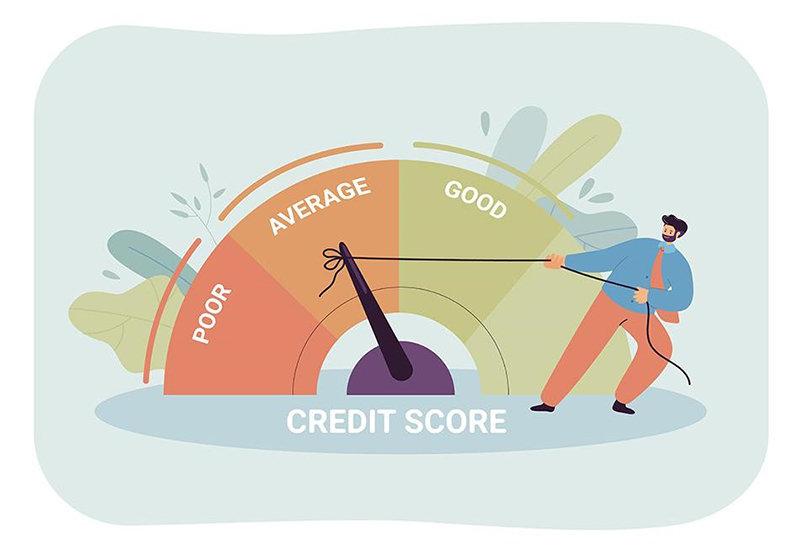 CIBIL
CIBIL
Exactly How Frequently Should I Check My CIBIL Score? What's The Myth? What’s The Truth?
A credit score is the numeric representation of an individual’s credibility as a borrower. Although there are various other credit scores like FICO score, Equifax score, etc., most lending institutions take a ‘good’ or ‘high’ CIBIL score as one of the eligibility parameters, especially for unsecured loans. They check the CIBIL score while approving secured loans to get an assurance that their customers will not default.
This is why you may need to monitor your credit score from time to time to ensure that it remains high or increases gradually.
Why Does a Borrower Check the CIBIL Score Frequently?
The CIBIL score does not remain the same but changes depending on several factors like repayment history, credit utilisation ratio, etc. By monitoring it from time to time, you ensure that the change is rational and not abrupt.
Moreover, you can check your credit scores with the expectation that the recent timely repayment will help you increase your credit score. However, the credit bureaus may take around 30-45 days to update recent data about your loan repayment. Resultantly, you may keep checking your credit score until it reflects your desired result.
The essential purpose of checking this CIBIL score frequently is to monitor it. If it reflects any undesired fluctuation of the score, you can report it to the bureau so that they can take necessary measures immediately.
How Frequently Should One Check the CIBIL Score?
There is no bar on how many times you can check your credit score. It depends solely on your convenience, credit activity and availability of time. It is a healthy practice to check this score at least once every quarter. Nevertheless, some people even check it annually, semi-annually, or monthly.
Checking the CIBIL score frequently does not leave any negative impact on creditworthiness. In fact, this practice will enable you to catch any discrepancy with it.
When Should One Check the CIBIL Score?
Following are some occasions when you should ideally check your credit score:
- Before Applying for a Loan
Lending institutions carefully examine this score while performing the initial checking of individuals’ loan applications. They ensure that the applicants have the minimum CIBIL score. It helps lenders understand that their applicants are credible borrowers.
This is why, when you are applying for a loan, you also need to ensure that your CIBIL score is more than or equal to the required credit score as stated in the eligibility criteria. It will help you get approval on your credit request without much difficulty.
- While Trying to Improve the Credit Score
You may have a poor CIBIL score for reasons like untimely repayment, loan default, higher credit ratio, etc. You may make a sound plan to increase it so that borrowing in future does not become stressful for you. As a result, you may need to check your CIBIL score periodically to monitor its increase.
- After Closing a Debt
You should also ideally check your CIBIL score after the repayment is complete. It will help you understand whether the credit bureau has updated your information about the debt closure. If it takes more time than necessary, you can convey the issue to the credit bureau.
What Should be Your Desired CIBIL Score?
Generally, the CIBIL scores range between 300 and 900. Your creditworthiness depends on your score, as mentioned below:
|
CIBIL Score |
Creditworthiness |
|
Below 600 |
High risk |
|
600-699 |
Fair |
|
700 - 799 |
Good |
|
Above 800 |
Excellent |
You should ideally maintain a CIBIL score of at least 750 to get quick approval on your loan application.
How to Check the CIBIL Score
Various financial institutions let their customers check the CIBIL score from their portal free of cost with an aim to assist them.
Here is a step-by-step process to check the credit score:
Step 1: Visit the official website of the online platform that lets you check your CIBIL score free of cost
Step 2: Click on ‘Check CIBIL Score’ to get the required application form
Step 3: Enter the required details like type of employment, address, mobile number, email ID, PAN number, etc.
Step 4: Tap on ‘Get OTP’
Step 5: Enter the OTP
Step 6: Submit your filled-in form
After this, the website will verify your entered inputs and reflect the CIBIL score.
Alternatively, you can also access the portal of TransUnion CIBIL to check your credit score free of cost. Here is the stepwise process to do so:
Step 1: Visit the website of TransUnion CIBIL
Step 2: Click on ‘Get Free CIBIL Score and Report’
Step 3: Create your user account by providing your personal, professional and residential details
Step 4: Verify yourself by providing any of your government-issued ID-number after selecting the ID type
Step 5: Click on ‘Accept and Continue’
After verification of all your entered details, you can see your credit score.
You can check the CIBIL score as many times as you want, depending on the purpose of doing so. However, monitoring it once every quarter will help to be cognizant of any discrepancies. Then, you may report it to the credit bureau and get a timely resolution.
Support Our Journalism
We cannot do without you.. your contribution supports unbiased journalism
IBNS is not driven by any ism- not wokeism, not racism, not skewed secularism, not hyper right-wing or left liberal ideals, nor by any hardline religious beliefs or hyper nationalism. We want to serve you good old objective news, as they are. We do not judge or preach. We let people decide for themselves. We only try to present factual and well-sourced news.







